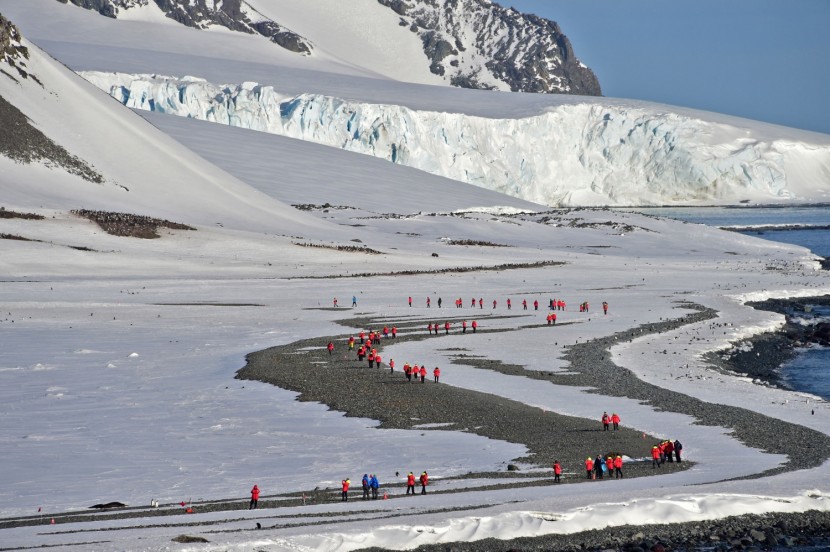In a recently surfaced video, Iranian Navy Rear Admiral Shahram Irani asserted Iran's ownership of Antarctica, particularly the South Pole, stating the country's "property rights" in the region.
Irani declared these intentions during a television broadcast last fall, emphasizing plans to conduct both military and scientific activities in Antarctica.

"With regard to the South Pole, we have property rights there, and they belong to the public," Irani said.
The navy commander also highlighted the dual purpose of Iran's ambitions in Antarctica.
"Our plan is to raise the flag there, inshallah. It is not only military work but also scientific work that needs to be carried out," stated Irani. He expressed confidence that such endeavors would benefit Iran's scientific community, aligning with the guidelines set by the country's leadership.
"Our scientists are getting ready for a joint operation, encompassing the efforts of all our people, in keeping with the guidelines of our leader, inshallah," he added.
The announcement comes amid escalating tensions globally, with the Middle East witnessing increased turmoil due to Iran's involvement in various conflicts.
The declaration of ownership over Antarctica by Iran's Navy commander has raised concerns, especially considering recent actions by Iranian-backed militias resulting in fatalities, including the deaths of three US soldiers in Jordan.
Questions have arisen regarding the potential use of unfrozen Iranian funds, amounting to $6 billion, for establishing a military base in Antarctica.
Joe Biden's decision to release Iranian funds was met with strong disapproval, with critics arguing that it provided access to resources potentially linked to the Hamas attacks on Israel on October 7.
However, the US State Department clarified that these funds are strictly earmarked for humanitarian purposes, such as purchasing food, medicine, and agricultural products, and cannot be utilized for activities in Antarctica.
Iranian President Ebrahim Raisi criticized the constraints imposed by the Biden administration, stating that the assets would be utilized "wherever we need it."
Military and intelligence analysts have emphasized the risks associated with Iran's expansionist agenda, urging heightened vigilance from the international community, particularly concerning nuclear threats.
Antarctic Treaty and Territorial Claims
While Iran's naval ambitions extend beyond the Middle East, with previous reports suggesting plans for a military presence at the Panama Canal, the assertion of ownership over Antarctica raises significant legal and geopolitical questions.
The intricacies of claiming interests in Antarctica, as highlighted by experts, underscore the importance of existing treaties and international agreements governing the region.
In response to queries regarding Iran's potential claims in Antarctica, Jennifer Dyer, a retired commander of US Naval Intelligence, highlighted the limitations imposed by the Antarctic Treaty.
Signed by numerous countries, including major global powers, the treaty prohibits territorial claims made after 1961, effectively challenging Iran's assertions. The treaty affirms that Antarctica is designated exclusively for peaceful and scientific activities.
Seven nations, including the United Kingdom, Chile, Argentina, France, Australia, New Zealand, and Norway, have asserted territorial claims over Antarctica. Nonetheless, the majority of other countries do not acknowledge these claims.
The international community, including signatories to the Antarctic Treaty, closely monitors Iran's actions and their potential implications for global stability.
Related Article: U.S. Deems Iran-Backed Militia as Mediocre
© 2026 HNGN, All rights reserved. Do not reproduce without permission.








